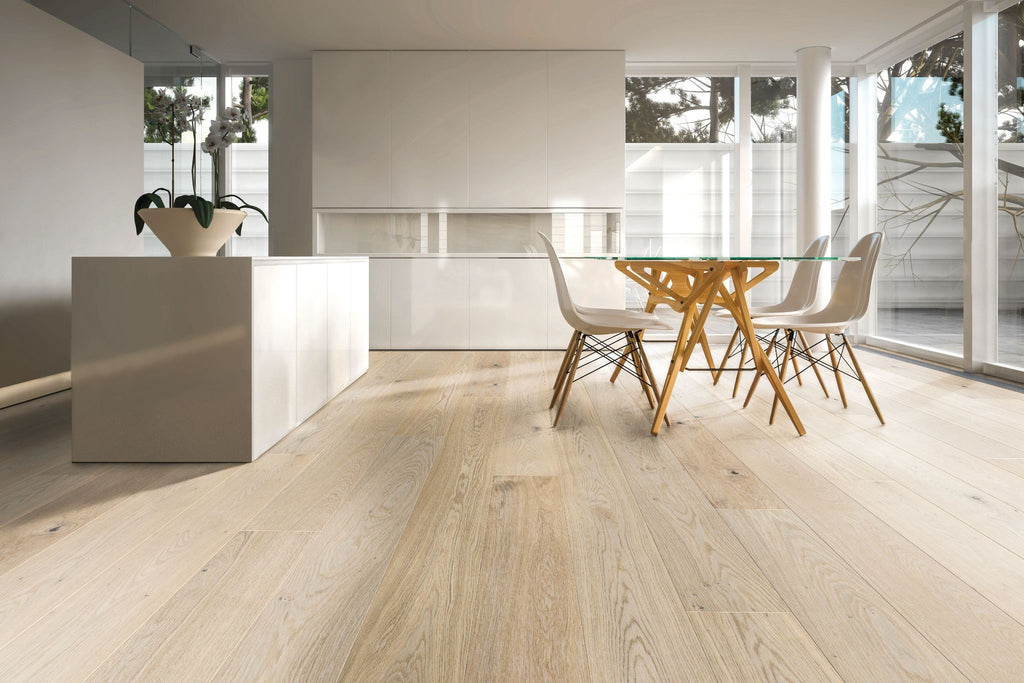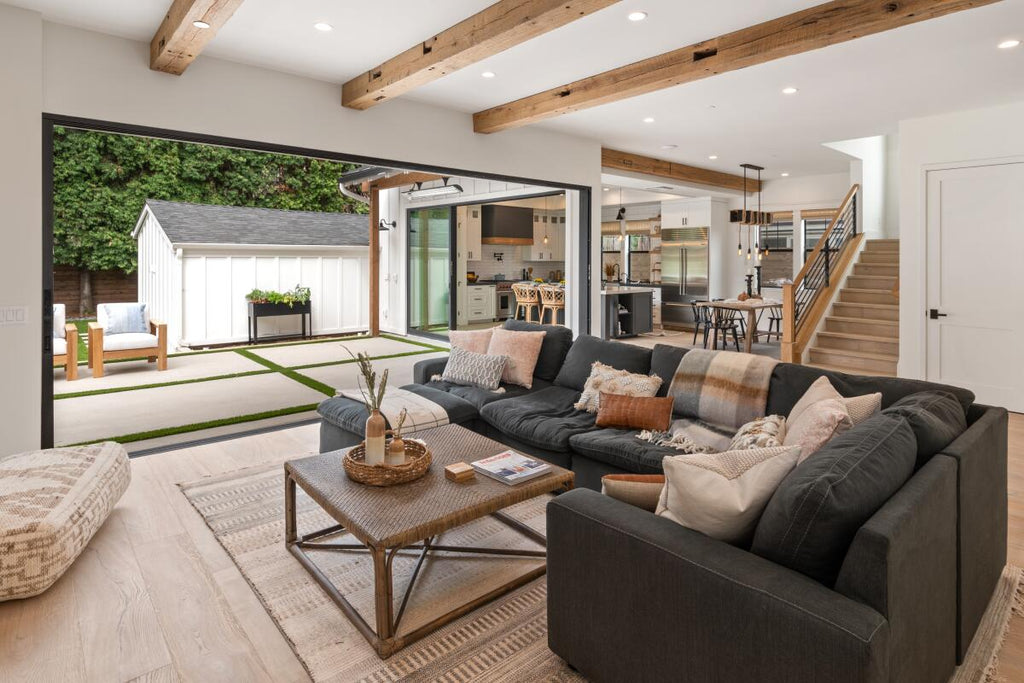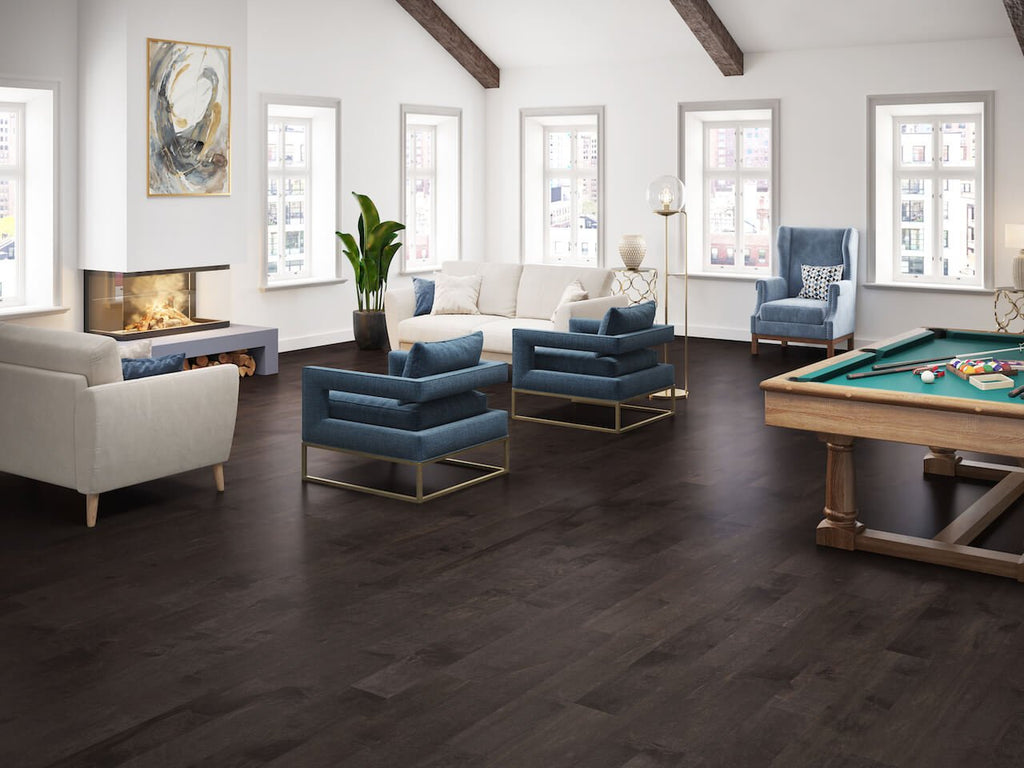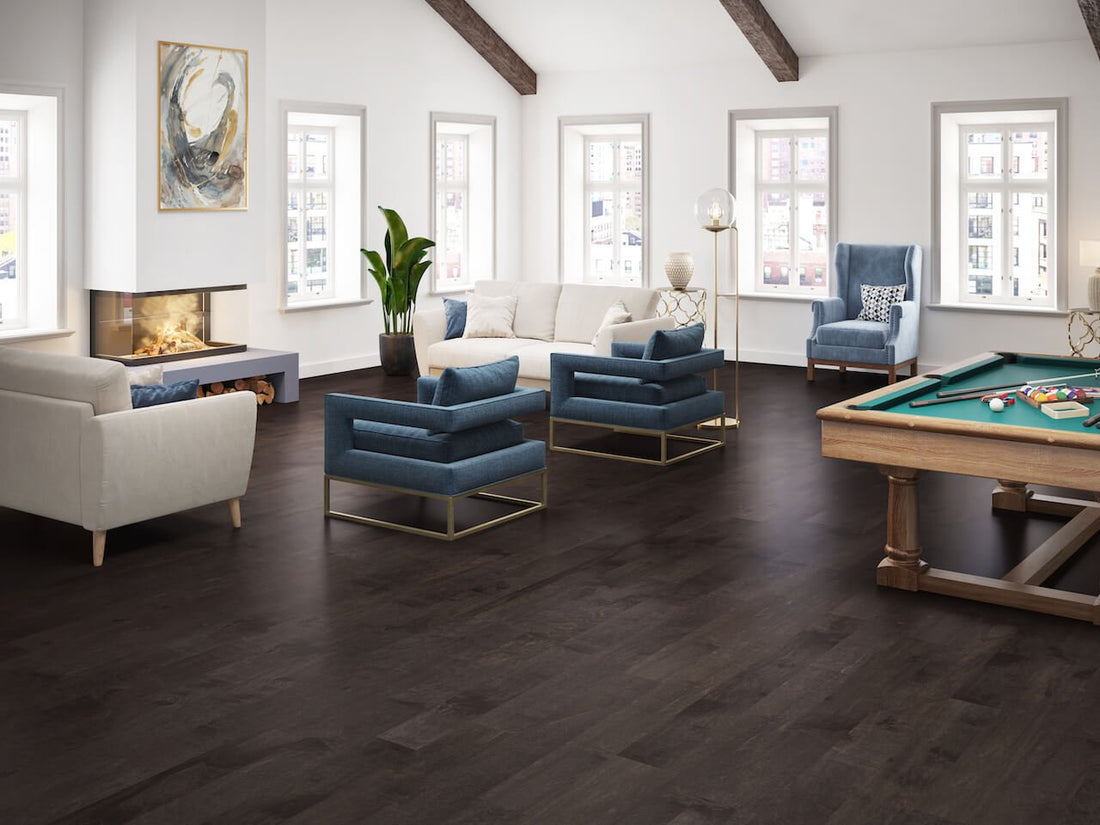When it comes to flooring that strikes the perfect balance between sophistication, durability, and affordability, engineered hardwood stands as a beacon of style and practicality. This versatile flooring option offers an opportunity to infuse high-end aesthetics into your home without breaking the bank.
The Appeal of Engineered Hardwood:

Engineered hardwood has garnered attention for its ability to mimic the luxurious look of solid hardwood while offering several advantages. Its construction involves layers of wood bonded together, providing enhanced stability and resistance to moisture, making it suitable for various areas in the home.
Affordable Luxury:
One of the most compelling aspects of engineered hardwood is its ability to provide an upscale appearance at a fraction of the cost of solid hardwood. It offers a range of finishes and species that closely resemble the elegance of traditional hardwood, allowing homeowners to achieve a high-end aesthetic without exceeding their budget.
Variety of Styles and Finishes:
Engineered hardwood comes in a vast array of styles, colours, and finishes. Whether you prefer the timeless charm of oak, the rich hues of walnut, or the contemporary look of maple, there's an option to suit every design preference. Distressed finishes, smooth surfaces, and textured appearances cater to diverse interior styles.
Durability and Practicality:
Apart from its cost-effectiveness, engineered hardwood boasts remarkable durability. The multi-layered construction provides stability, reducing the risk of warping or expanding due to temperature and humidity fluctuations. Its durability makes it an ideal choice for high-traffic areas in the home.
Easy Installation and Maintenance:
Engineered hardwood often features innovative click-lock or tongue-and-groove installation systems, making it a DIY-friendly option. Its low maintenance requirements involve regular sweeping and occasional damp mopping, making it effortless to preserve its beauty over time.
Is Engineered Hardwood A Cost-Effective Alternative To Solid Hardwood Flooring?

Engineered hardwood stands out as a notably cost-effective alternative to solid hardwood flooring without compromising on aesthetics or quality. This flooring option consists of multiple layers of wood, with a top layer of genuine hardwood, providing an authentic appearance akin to solid hardwood. The construction method maximizes the use of raw materials, allowing for a more budget-friendly price point compared to solid hardwood. This affordability makes it an attractive choice for homeowners seeking the elegance of hardwood flooring within a more constrained budget.
Moreover, engineered hardwood's layered composition contributes to its cost-effectiveness by enhancing durability. Unlike solid hardwood, engineered planks are less prone to expanding or contracting due to changes in temperature and humidity. This stability minimizes the risk of warping or cupping, reducing the need for frequent repairs or replacements and potentially saving on long-term maintenance expenses. Hence, with its blend of visual appeal, durability, and a more economical price tag, engineered hardwood emerges as a prudent investment for those desiring the charm of hardwood flooring while managing costs effectively.
Can Engineered Hardwood Flooring Withstand Moisture And Temperature Changes?
Engineered hardwood flooring is more resistant to moisture and temperature changes compared to solid hardwood flooring due to its layered construction. The manufacturing process involves bonding multiple layers of wood in a cross-grain configuration, which enhances its stability and reduces susceptibility to expansion and contraction caused by changes in humidity or temperature.
While engineered hardwood is more resistant to moisture than solid wood, it's essential to note that it's not entirely waterproof. The top layer of real wood can still be affected by excessive moisture exposure. However, the engineered construction makes it less prone to warping, cupping, or buckling when faced with moderate fluctuations in humidity or temperature.
When installed and maintained correctly, engineered hardwood can be suitable for areas prone to occasional moisture, such as kitchens or bathrooms. It's crucial to follow manufacturer guidelines for installation, use appropriate moisture barriers, and promptly clean up spills to maintain the flooring's integrity and longevity. Overall, while engineered hardwood is more resilient to moisture and temperature changes than solid hardwood, it's essential to take preventive measures to safeguard it from excessive water exposure.
What Are The Maintenance Requirements For Engineered Hardwood Flooring?

Maintaining engineered hardwood flooring is relatively straightforward and involves regular care to preserve its beauty and durability:
Routine Cleaning: Sweep or vacuum the floor regularly to remove dust, dirt, and debris that can scratch the surface. Use a soft-bristle broom or a vacuum with a hardwood floor attachment to prevent scratching.
Damp Mopping: Periodically damp mop the floor using a slightly dampened (not wet) microfiber cloth or mop. Use a manufacturer-recommended hardwood floor cleaner or a mild detergent mixed with water. Avoid excessive water, as standing moisture can damage the wood.
Spill Cleanup: Wipe up spills immediately using a dry or slightly damp cloth. Avoid letting liquids sit on the surface for an extended period to prevent stains or damage to the finish.
Avoid Harsh Cleaners: Steer clear of harsh cleaning agents, abrasive cleaners, wax-based products, or steam mops, as they can damage the flooring's finish.
Protective Measures: Place mats or rugs at entryways and high-traffic areas to minimize dirt and moisture tracked onto the floor. Felt pads or furniture protectors under furniture legs prevent scratches.
Regular Inspections: Periodically check the flooring for scratches, dents, or any signs of wear. Promptly address any issues by using touch-up kits or contacting professionals for repairs.
Avoid Excessive Sun Exposure: Limit direct sunlight exposure by using curtains or blinds to prevent discolouration or fading of the wood.
Remember, specific maintenance requirements may vary based on the type and finish of the engineered hardwood. Always refer to the manufacturer's guidelines for recommended cleaning products and techniques to ensure the proper care and longevity of your flooring.
Elevate Your Space Affordably with Engineered Hardwood
Engineered hardwood stands tall as a testament to the fusion of elegance, practicality, and affordability in the flooring realm. It's an invitation to infuse your home with the opulence of high-end flooring without compromising your budget.
Other flooring blog articles you may want to read:
You Asked, We Answer: Exploring Types of Floor Nosing
The Top Benefits of Installing Engineered Hardwood Floors
Hardwood Flooring in Commercial Spaces: Elevating the Ambiance and Functionality
